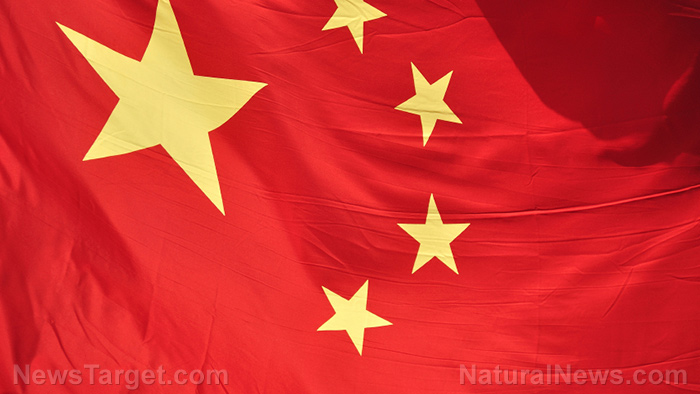
Advertisement
In recent months, U.S. authorities have discovered Chinese operatives scheming to compromise American interests through the university system, including plots to steal missile technology and cancer research.
(Article by Kyle Hooten republished from CampusReform.org)
Ye Yanqing used to be a student at Boston University until she chose to flee the country last month. The reason for her departure: an FBI investigation regarding her position as a Lieutenant in the Chinese People’s Liberation Army (PLA), according to the Washington Times.
According to investigators, Ye was taking orders to gather intelligence from “senior leaders of the PLA while conducting research at Boston University,” according to the Washington Times. In addition to committing espionage, she also failed to disclose her position as an active-duty PLA officer, earning her charges of visa fraud in addition to charges of acting as a foreign government agent, making false statements to investigators, and conspiracy.
This sort of collusion isn’t limited to Chinese-born student-spies. Charles Lieber, the chair of Harvard’s chemistry department was taken into custody and charged Jan. 28 for making false statements to investigators about his financial ties to China.
Lieber, who has been described as “one of the most distinguished scientists of our time,” received undisclosed 7-digits payments after he agreed to work as a “Strategic Scientist” at the Wuhan Institute of Technology between 2012 and 2017, according to his federal indictment.
The Harvard academic helped China “cultivate high-level scientific talent in furtherance of China’s scientific development, economic prosperity and national security,” according to the Department of Justice. Harvard says it was not aware of its chair’s lucrative international deal.
Lieber’s indictment was announced alongside that of another academic, Zaosong Zheng, who was caught attempting to smuggle 21 vials of cancer research to China in a sock.
Zheng was allowed to enter the U.S. in 2018 to conduct cancer research at Beth Israel Deaconess Medical Center in Boston, according to the U.S. Attorney’s Office, but was arrested in December 2019 as he attempted to steal valuable research samples.
After he was caught, “Zheng stated that he intended to bring the vials to China to use them to conduct research in his own laboratory and publish the results under his own name,” according to the Justice Department.
The Department of Justice also uncovered a similar plot in July, when it was revealed that UCLA professor Yi-Chi was involved in a scheme to illegally send American semiconductor computer chips to China. The chips Yi-Chi sought to export are most commonly used in missile and fighter jet design. He is now facing more than 200 years in prison.
Prosecutors say the University of Texas professor Bo Mao also attempted to steal U.S. technology, using his position as a professor to obtain access to protected circuitry then handing it over to the Chinese telecommunications giant, Huawei, reported NBC.
A researcher at the University of Kansas, a student at the Illinois Institute of Technology and a young prodigy working directly under the acclaimed scientist Dr. David Smith of Duke University have also all been at the center of investigations into Chinese academic espionage in recent months.
China chooses to spy on colleges for a reason. Top security officials believe that it’s a dangerous combination of low security and the presence of valuable information that makes schools a ripe target for foreign eyes.
Schools are “where the science and technology originates — and that’s why it’s the most prime place to steal [from],” the most senior counterintelligence official in the Office of the Director of National Intelligence told NBC. “A lot of our ideas, technology, research, innovation is incubated on those university campuses.”
“China’s communist government’s goal, simply put, is to replace the U.S. as the world superpower, and they are breaking the law to get there,” FBI agent Joseph Bonavolonta told NBC on the topic of spying in higher education.
Despite a clear message from federal intelligence agencies that something needs to be done to protect American academia, many school administrators have spoken out against increased security.
“Our greatest strength is our openness,” president of the California Institute of Technology Thomas Rosenbaum claimed during an interview with NBC on this topic.
Robert Daly, director of the Wilson Center’s Kissinger Institute on China, likened fears of Chinese spying to “McCarthyism,” and alleged that such worries are born from a place of racism in his remarks to the network on Chinese spying.
Lee Bollinger, president of Columbia University penned a recent op-ed stating that while he recognizes the sensitivity of the information stored in schools, he opposes increased efforts to identify student-spies.
“Academic research in such national security realms as cybersecurity and bioterrorism is justifiably sensitive,” he wrote. “At the same time, however… academic research is intended to be shared.”
“No, I won’t start spying on my foreign-born students,” he concluded.
Read more at: CampusReform.org and CampusInsanity.com.
Advertisement
Advertisements
















